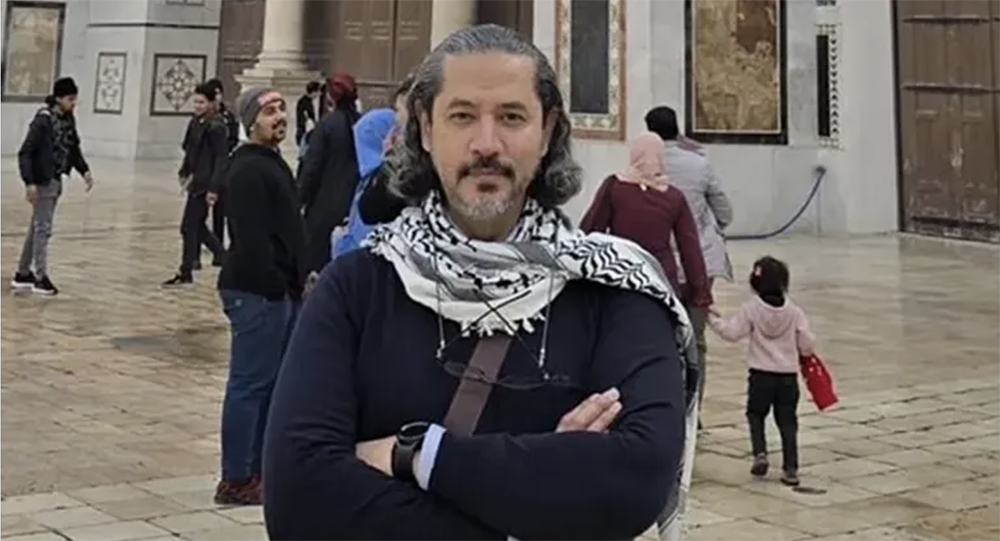The Senate Human Rights Caucus held a discussion June 15, 2021, on the state of human rights in Turkey moderated by Nadine Maenza, Commissioner of United States Commission on International Religious Freedom, and featuring remarks by Senator Chris Coons and Senator Thom Tillis.
Turkey is a strategically located NATO member state and regional power with an ethnically diverse population. President Recep Tayyip Erdoğan and the Justice and Development Party (AKP) has controlled the government in Turkey since 2002. Over time, President Erdoğan has increasingly exercised political power to silence dissent, detain opponents, and limit civil liberties. Following the July 15, 2016 coup attempt in Turkey, these activities escalated significantly. The ensuing crackdown resulted in the dismissal of nearly 60,000 law enforcement and military personnel, 125,000 civil servants, one-third of the judiciary, and the detention of over 90,000 citizens from 2016 to 2020, according to the State Department Country Report on Human Rights Practices. Freedom House’s 2021 Freedom in the World Report highlighted these illiberal trends by reporting that Turkey experienced the second largest decline in freedom of any country from 2011 to 2021.
Panelists discussed the status of human rights in Turkey and how Turkish leadership can engage in reforms to protect and promote the fundamental rights and freedoms of Turkish citizens.
Panelists:
- Ms. Merve Tahiroğlu, Turkey Program Coordinator, Project on Middle East Democracy
- Mr. Diliman Abdulkader, Co-Founder and Spokesperson, American Friends of Kurdistan
- Mr. Aykan Erdemir, Turkey Program Senior Director, Foundation for Defense of Democracies
- Dr. Suleyman Ozeren, adjunct faculty at George Mason University
Remarks from POMED’s Turkey Program Coordinator Merve Tahiroğlu are as follows (read them as a PDF here):
Thank you, co-chairman Coons and co-chairman Tillis, for holding this panel and for inviting me to speak.
Turkey’s human rights crisis is today at a level unprecedented in the 19 years that President Erdoğan has ruled the country. I would like to focus my remarks on what this means for Turkey’s trajectory and why the United States must prioritize democratic values in its policy towards Turkey.
Erdoğan’s blatant disregard for basic human rights is an alarming threat to Turkey’s social and political stability. Under his rule, the Turkish government is leveling an abhorrent crackdown on Turkey’s political opposition, independent media, and civil society—dismantling the fundamental building blocks of a stable democracy. Turkey’s top opposition leaders, who together represent more than half of the electorate, face constant harassment from a politicized judiciary. Erdoğan’s near-total control of the media and periodic bans on protests leave disgruntled citizens with very few outlets to express their frustration democratically. In a country as polarized along ethnic, religious, and political lines as Turkey, this is a recipe for social upheaval and civil strife.
The most urgent issue that could trigger such unrest is the government’s effort to shut down the HDP, Turkey’s second largest opposition party. For years now, authorities have been jailing the party’s duly elected lawmakers and mayors without just cause or due process—in effect, disenfranchising millions of voters. Critically, a majority of the HDP’s voters are Kurds, Turkey’s largest ethnic minority. And for the last 40 years, Turkey has been engaged in a deadly war with Kurdish militants—a war that bitterly divides Turkish and Kurdish citizens. Erdoğan’s assaults on the HDP only fuel this polarization and severely damage prospects for peace.
Another top concern for Washington is Turkey’s disregard for the rule of law, at home and abroad. Erdoğan’s control of the judiciary not only makes everyone in Turkey, including American citizens, vulnerable to arbitrary prosecutions; it also makes Turkey an irresponsible international actor. Today, Erdoğan’s Turkey is second only to Putin’s Russia in the number of cases it faces before the European Court of Human Rights. Despite Turkey’s legal obligation to follow the court’s decisions, it has been refusing to implement them—most prominently, by failing to release a high-profile political detainee, civil society leader Osman Kavala, for nearly two years. This is by no means the only example. Erdoğan is leading Turkey to undermine key multilateral institutions that are designed to uphold a rules-based international order. It is no coincidence that Turkey recently forced its NATO allies to water down a crucial joint statement condemning Belarusian dictator Lukashenko after he brazenly kidnapped a 26-year-old dissident from a Ryanair flight.
Erdoğan’s authoritarianism is not just a domestic issue: It is also fundamentally changing Turkey’s global orientation. The Turkish republic has never been a full-fledged democracy, but for decades, it saw itself as part of a Western club of democracies, and strived to be a responsible member of the international community. These features played a central role in turning Turkey into a U.S. ally, and remain the top reasons why NATO still has a vested interest in keeping Turkey in its orbit. But the more Erdoğan moves Turkey away from democratic values, the more Turkey undermines the alliance’s core objectives. For all of these reasons, it is vital for Washington to make the promotion of human rights and democracy in Turkey a top priority.
I look forward to your questions.
Find a PDF version of these remarks here.




